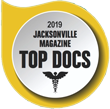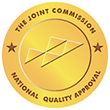Does insurance cover treatment for substance abuse?
When patients and their families decide to seek rehab for drugs or alcohol, one of their first questions is often: How am I going to pay for it?
Today, most insurance companies cover the cost of drug and alcohol treatment. Insurers consider rehab for a substance use disorder a treatment for a medical disease.
How much does rehab cost?
The cost of rehab can vary widely. Generally, outpatient rehabs cost less than residential or inpatient rehabs, because outpatient rehabs such as Recovery Keys in Jacksonville, Florida, don’t have to absorb the costs of lodging and meals. “Luxury” inpatient rehabs in particular can be very expensive.
Understanding your insurance coverage for rehab
Under the Affordable Care Act (ACA), behavioral health services, including rehab for alcohol and drugs, must be covered as “essential health benefits” by insurance plans. When determining how much of the treatment your insurance provider will cover, it’s important for patients to understand their insurance benefits, which vary from plan to plan. To understand your plan, here are some of the terms used.
The most common insurance types are health maintenance organizations (HMO) and preferred provider organizations (PPO). HMO plans deliver health benefits through a network of providers and limits the patient’s choice of providers. A primary care physician oversees all care and refers to specialists as needed. HMO’s do not cover out-of-network providers.
PPOs give you more freedom in choosing your healthcare provider. With this plan type, you can utilize in-network or out-of-network providers. You will typically pay less at an out-of-pocket with an in-network provider than an out-of-network provider. A referral from your primary doctor to see a specialist is not required with a PPO plan.
Deductibles and out-of-pocket costs
Both PPOs and HMOs often have deductibles, which is the amount that must be paid by the patient before insurance will begin paying claims. Deductibles can range from a few hundreds dollars to several thousands, depending on the plan. Insurance plans are often offered in three levels of coverage: Bronze, Silver, Gold. Bronze-level plans tend to have lower monthly premiums, but higher deductibles and other out-of-pocket costs. Gold plans tend to have the highest monthly costs but the lowest deductibles.
Coinsurance is another out-of-pocket cost that’s part of most insurance plans. Coinsurance is the percentage of the cost of a covered health care service you pay after you have paid your deductible. Coinsurance can range from 20-50%.
Another feature of insurance plans worth understanding is the out-of-pocket maximum, a safety net put in place to protect patients. The out-of-pocket maximum is the most you will pay toward any medical costs for the benefit year. Once your out-of-pocket maximum is met, your health insurance covers 100% of eligible medical expenses.
Paying for rehab: Sample scenario
The following scenario will help you to understand how your deductible, coinsurance and out-of-pocket maximum works. Suppose your policy reads as follows:
• Deductible: $3,000
• Coinsurance: 30%
• Out-of-pocket maximum: $6,000
You are going to enroll in a drug and alcohol addiction treatment program or will be scheduled for some type of medical procedure. The medical bill comes to a total of $50,000 but luckily you have insurance coverage to help with the costs.
Before your health insurance will contribute any money towards the cost you will be required to pay your deductible in full. You are responsible for a $3,000 deductible, which will leave an outstanding balance of $47,000. This balance will be shared between you and your health insurance company with your coinsurance being 30% of the remaining $47,000, which comes out to $14,100.
But remember, you have a financial safety net in place with an out-of-pocket maximum amount of $6,000. This means, once you pay $6,000 of eligible medical expenses your policy will now cover at 100% of eligible expenses for the benefit year. After all is said and done, your cost is actually $6,000.
Does insurance cover medication-assisted treatment (MAT) such as Suboxone?
Recovery Keys offers medication-assisted treatment (MAT) for substance use disorders, including buprenorphine/naltrexone (Suboxone) treatment for certain patients seeking treatment for opioid addiction. Suboxone and its generic equivalent buprenorphine/naltrexone can reduce cravings for opioids such as heroin or prescription pain pills, and eliminate withdrawal symptoms from opioids. Studies have shown Suboxone reduces the chances of relapse. Suboxone should be used in conjunction with substance use counseling and other recovery support.
Many insurance companies now cover a portion of Suboxone treatment. You can find information about Suboxone coverage in your plan’s formulary, or a list of medications covered as part of your insurance plan. The Recovery Keys admissions team can also help you determine if Suboxone is covered, and assist with any prior authorizations required by your insurer to receive Suboxone coverage. You may also be eligible for savings cards for Suboxone that will reduce the cost, and make Suboxone more affordable if your insurer’s level of coverage isn’t sufficient.
Payment plans and medical loans
Understanding your insurance benefits can be a daunting task. For more information, you can call your insurance provider using the number provided on the back of your insurance card. If you are considering drug and alcohol treatment, you can also ask the admissions team to help you understand your coverage and financial responsibility. Those patients with high out-of-pocket costs or high deductibles can certainly speak with the admissions staff about affordable payment plan options. Medical loans through M-lend Financial can also help you secure financing for treatment for a substance use disorder.
Get help now
Recovery Keys is an accredited alcohol and drug rehab in Jacksonville, Florida, led by Jeremy Mirabile, MD, a board-certified addiction medicine specialist and diplomate of the American Board of Preventive Medicine – Addiction Medicine (ABPM-ADM). Recovery Keys accepts most major insurance coverages. We also offer payment plans. Our admissions team will help you determine all of the benefits you are entitled to receive as part of your insurance plan.
Schedule your consultation with our substance abuse experts today.


















